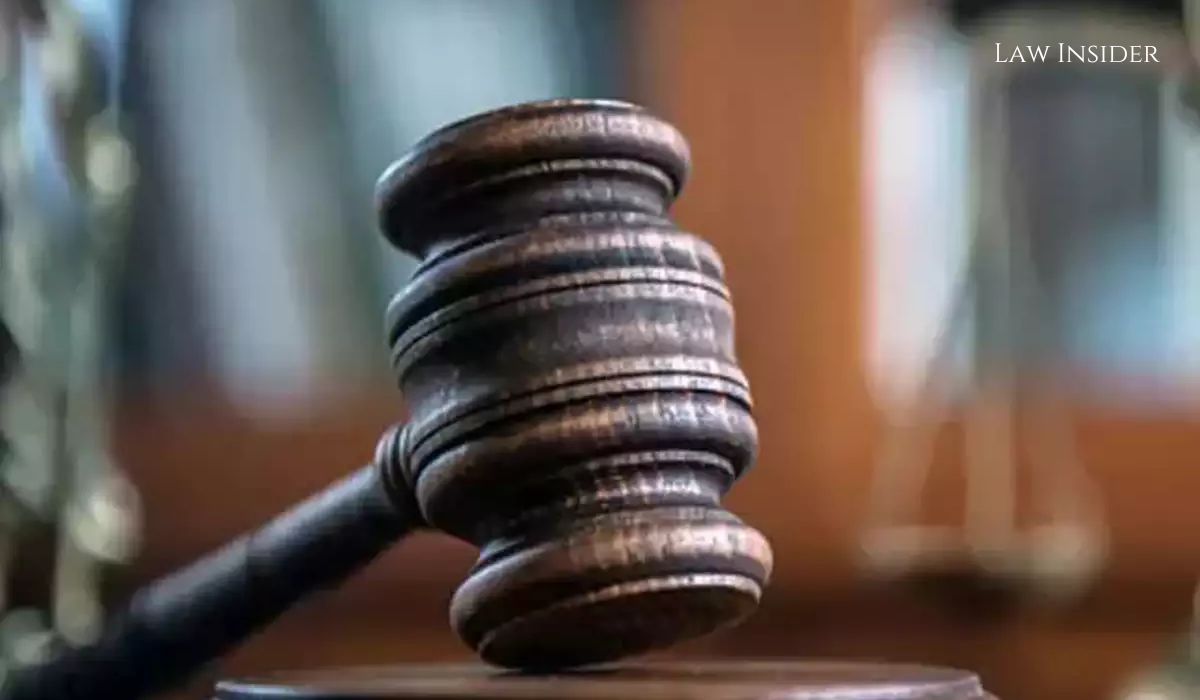Bhuvana Marni
Published on: November 2, 2022 at 18:22 IST
A 21-year-old engineering student was given a 5-year prison sentence by a Bengaluru court on Monday for “celebrating” the Pulwama attack by supporting terrorists’ actions to undermine India’s sovereignty and integrity on Facebook.
The Special NIA Court presided over by Additional City Civil & Sessions Judge Gangadhara C. M., determined that the prosecution had presented adduced cogent and convincing evidence that the defendant had indeed posted derogatory posts on his Facebook account, celebrating the suicide attack on the Indian CRPF Jawans in Pulwama.
“The accused has not made derogatory comments one or two times. He made the comments to all the posts made by all the news channels on Facebook. Moreover, he was not an illiterate or ordinary man. He was an engineering student at the time of commission of the offence and he made the posts and comments intentionally on his Facebook account.”
“He felt happy about killing of the great souls and celebrated the death of the great souls as he was not an Indian. Therefore, the offence committed by the accused is against this great nation and heinous in nature,” the Court remarked.
The accused Faiz Rasheed, who is studying engineering at a college in Bengaluru, has been convicted by Sections 153-A of the IPC and 13 of the Unlawful Activities (Prevention) Act, 1967.
It should be noted that the court did not conduct a trial for the offence punishable by Section 124A of the IPC since the case has been adjourned by the guidelines set forth by the Hon’ble Supreme Court in S.G. Vombatkere vs. Union of India.
Following the Pulwama Attack, several News Channels posted news articles on the tragedy on Facebook on their page or account.
The accused wrote (as a reply to those posts) that “Ek musalman 40 par bhaari pad gaya Kashmir ka hero Allah Hu Akbar’, ‘ye tho mob lynching, ram mandir 2002, ka chota sa badla tha.. trailer samajna kyunki picture abhi bakhi hai chutiyo’, ‘how is the khauf Indian army??, “our boys are always funny” “how’s the khauf Indian army?? gand Fati?”
Additionally, he shared images of the Indian Prime Minister Narendra Modi and other BJP officials along with the emojis “GALI GALI CHOR HAI” and a smiley face emoji. He also shared a picture of the suicide bomber, who could be seen clutching a gun.
As a result, a suo motu case was initiated, and the police detained him and accused him of violating the UAPA Act as well as IPC, Sections 153A (offence of promoting disharmony, enmity, or feelings of hatred between different communities) and 124A (sedition).
The prosecution presented the court with strong and persuasive evidence to support its claims throughout the trial.
Additionally, the confessions made by the defendant throughout the cross-examination strengthened the prosecution’s case.
After reviewing the prosecution’s case against engineering student Rasheed, the court found that it was established that he made derogatory comments to provoke enmity among various religious groups and that his actions were detrimental to the maintenance of harmony in different groups and likely to disturb public peace.
The Court further noted that it had been established that members of the Hindu community expressed their rage by reacting to the comments of the accused in a derogatory manner and that some members of the Muslim community had even supported the comments made by the accused.
As a result, the Court concluded that the acts of the accused satisfied the requirements for an offence punishable under Section 153A of the IPC.
“…the accused has taken the issue of Rama Mandir in his comments which instigates the religious feelings of Hindu community. He has also commented as on Muslims equal to 40 persons and Muslim boys are always funny.”
“Further there is evidence to show that the Hindu community people made derogatory comments by enraging the comments made by the accused…,” the Court further noted in its order.
The Court also stated that an offence under Section 201 IPC was also established since the prosecution had established that the accused deleted the posts from his Facebook account to destroy the evidence and shield himself from legal punishments.
Regarding the violation of Section 13 of the UAPA [Punishment for unlawful activities], the Court observed that the accused’s comments on social media showed that he supported or advocated the terrorist activities committed by the terrorists against the Indian Army with the intent to disrupt India’s sovereignty and integrity and to sow discontent with India.
As a result, the Court determined that the prosecution had succeeded in adducing evidence to establish both the ingredients of unlawful activity as specified by Section 2(o) of the UA (P) Act and the offence punishable by Section 13 of the UA (P) Act.
Before issuing the decision, the Court emphasised that February 14, 2019, the day of the Pulwama Attack, is a Black Day in India’s history since more than 40 Jawans gave their lives in defence of the country.
“Due to the said incident, the whole nation was immersed in an ocean of sorrow. In this situation, the accused celebrated the death of more than 40 Indian Jawans who sacrificed their lives to protect the lives of the citizens of this country and to protect this great nation which has given every citizen of this country..”
“….to protect this great nation which has given every citizen of this county including the accused the fundamental rights such as right to equality, freedom of speech and expression, right to life and personal liberty, right against exploitation, right to freedom of religion, cultural and educational rights and constitutional remedies in case of any violation of fundamental rights guaranteed under part-III of the constitution,” the Court concluded.

